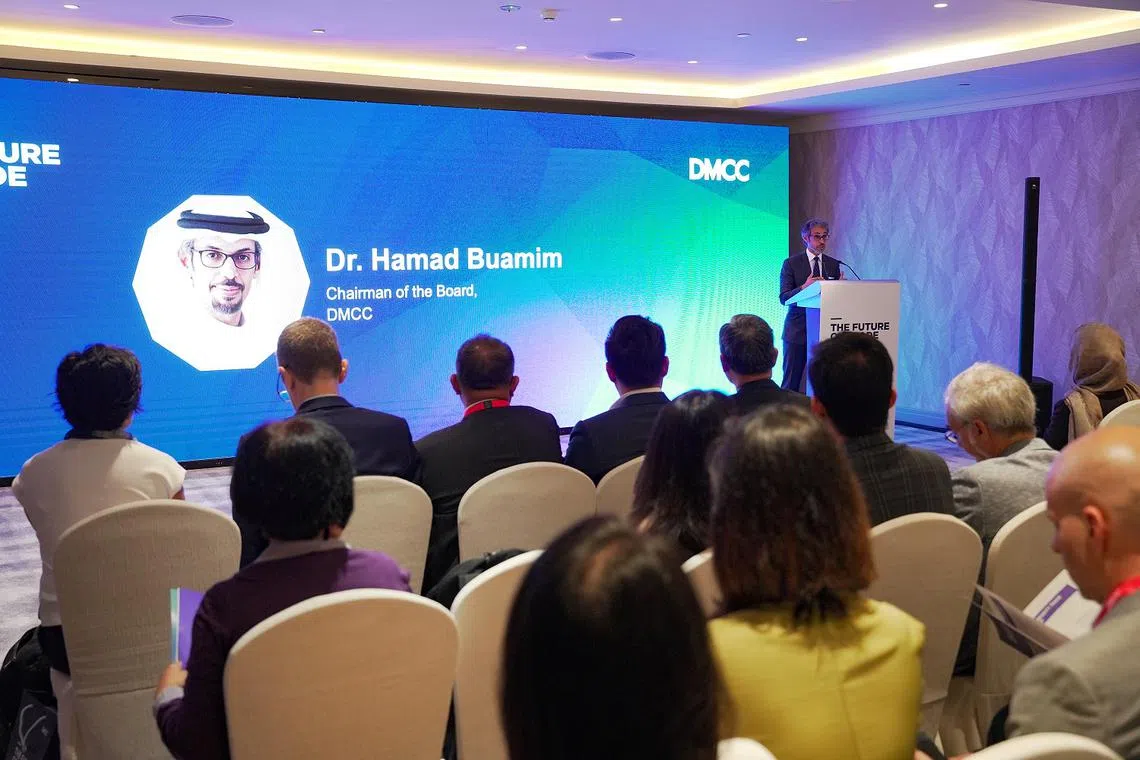AI will transform trade but standardised regulations needed, says Dubai business hub
Conflicting rules mean businesses have to invest more into ensuring compliance, which could slow down the adoption of artificial intelligence

ARTIFICIAL intelligence (AI) may be revolutionising trade but it is still in its infancy, with regulatory divergence charting a bumpy terrain for businesses that trade internationally.
This finding was published in a report released in Singapore on Thursday (May 30) by the Dubai Multi Commodities Centre (DMCC), a global flagship free trade zone set up in 2002 by the emirate.
DMCC chief operating officer Feryal Ahmadi noted in her presentation that the dawn of AI is the most disruptive development in global trade.
“Data lacks global regulation with divergent rules across various jurisdictions regarding data privacy and intellectual property rights, (which) poses the greatest risk to deploying AI in trade on a global scale,” she said.
“Industries and governments must work together to figure out the frameworks that will accompany the adoption of AI – including barriers to free flow of data,” she added.
The report also pointed out that conflicting rules mean businesses have to invest more into ensuring compliance, which could slow down the adoption of AI.
Although the US traditionally sets the global standard for tech regulation, AI rules are emerging at various rates globally, which further complicates the regulatory landscape, noted the fifth edition of Future of Trade, the DMCC’s biennial flagship publication.
In his welcome remarks, DMCC’s chairman of the board, Hamad Buamim, also said: “AI adoption is one of the important factors that we see that will contribute positively to trade.”

He added: “In short, the good news: Trade is going to get more complex, and these changes that impact businesses will create more challenges, but also more opportunities.”
Global trade is also expected to grow slowly this year, with Asia seeing some of the strongest growth, alongside North America and Africa.
In particular, South-east Asia is increasingly becoming an attractive destination for export-oriented foreign direct investment as businesses adapt to higher costs of doing business in China.
And it is not just the US that is trading more with Asean – the report highlighted that China is also refocusing on trade with the region as its exports of certain products to the US decrease.
Vietnam especially has made a name for itself as a significant manufacturing and export hub – particularly in electronics – with its competitive labour costs and traditionally largely stable political environment.
The report stated: “Over the next few years, it is unlikely that we will witness a reduction in trade, but rather a shift where trade takes place.
“While not a wholesale displacement of China, this reconfiguration of global supply chains, driven by a combination of economic and geopolitical factors, offers multinational corporations opportunities to fortify and optimise their logistics networks.”
Decoding Asia newsletter: your guide to navigating Asia in a new global order. Sign up here to get Decoding Asia newsletter. Delivered to your inbox. Free.
Copyright SPH Media. All rights reserved.

